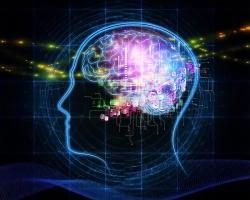Recent research reveals the experience of anxiety is related to both specific areas of the brain functioning abnormally, and beneficial brain processes with problematic outcomes.
A study through the University of Pittsburgh, for instance, looked at the effects of anxiety on neural mechanisms that effect our ability to choose.
Neural Glitches
Anyone who suffers from anxiety knows how difficult decision making is when anxiety is high. The Pittsburgh research, recently published in The Journal of Neuroscience, validates this difficulty by showing that anxiety causes cells in the brain’s prefrontal cortex (PFC) - an area vital for flexible decision making - to disengage.
More specifically, the researchers found that:
- Anxiety leads to poor decision making especially when the mind is confronted with conflicting, or distracting information.
- When people are anxious, poor choices involve the numbing, or disengagement of PFC neurons.
No wonder anxious people often rub their foreheads when struggling to choose, though this prefrontal massage does nothing to stimulate our PFC neurons. However, the Pittsburgh research is significant since it demonstrates there is more to anxiety than a brain-wide fear response.
“We have had a simplistic approach to studying and treating anxiety. We have equated it with fear and have mostly assumed that it over-engages entire brain circuits. But this study shows that anxiety disengages brain cells in a highly specialized manner,” said lead study author and neuroscience professor, Bita Moghaddam.
Yet, not all brain processes related to anxiety are glitches in neural activity.
Learning To Misperceive
Though parts of our brain may malfunction when we’re anxious, it seems that even positive brain attributes such as plasticity, or the ability to form new neural connections, might make some people more prone to anxiety.
A study done at the Weizmann Institute of Science in Israel revealed that in anxious individuals, emotional events can trigger enduring brain changes. This plasticity is a plus since it means our brain can respond to the environment and learn. However, these emotionally induced circuitry alterations can later cause us to experience a new event as we did the brain-changing one.
So, if our plastic brain becomes rewired by an anxiety generating experience, we may then misperceive future positive or neutral events as threatening, or anxiety producing. The circuitry created by anxiety becomes a filter through which other events are seen and responded to—the opposite of looking through rose-colored glasses.
“Anxiety traits can be completely normal, and even beneficial evolutionarily. Yet an emotional event, even minor sometimes, can induce brain changes that might lead to full-blown anxiety,” says Weizmann researcher Rony Paz.
Sources: Science Daily; Science Daily
Photo credit: A Health Blog



